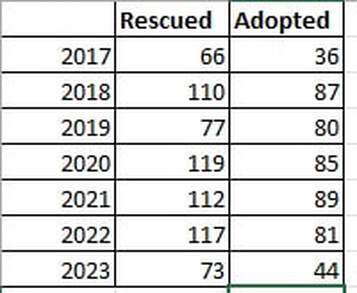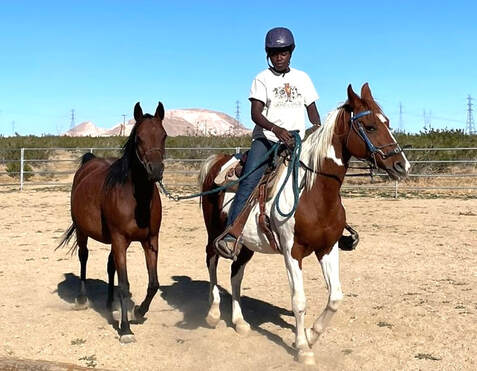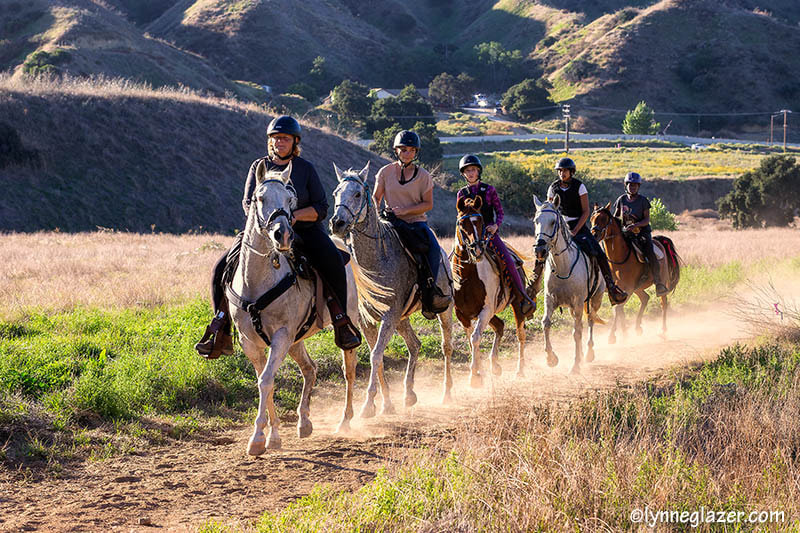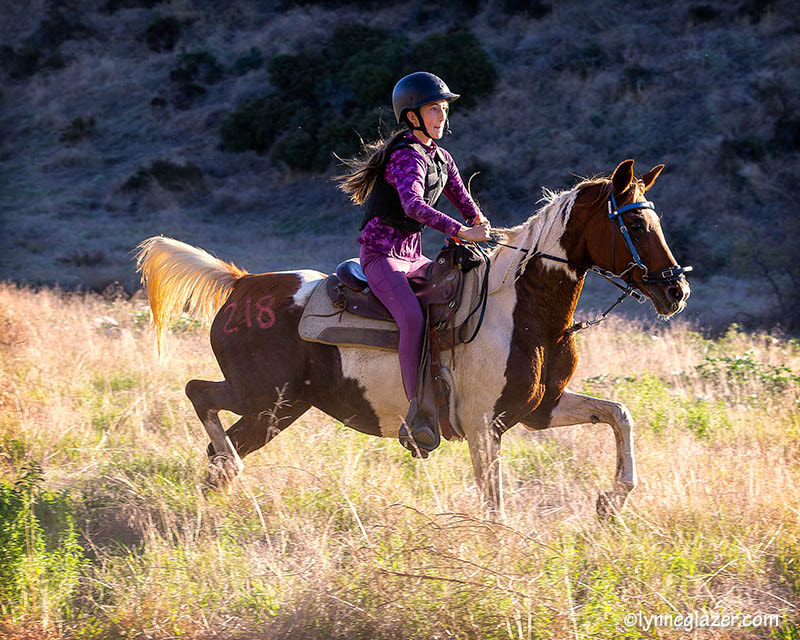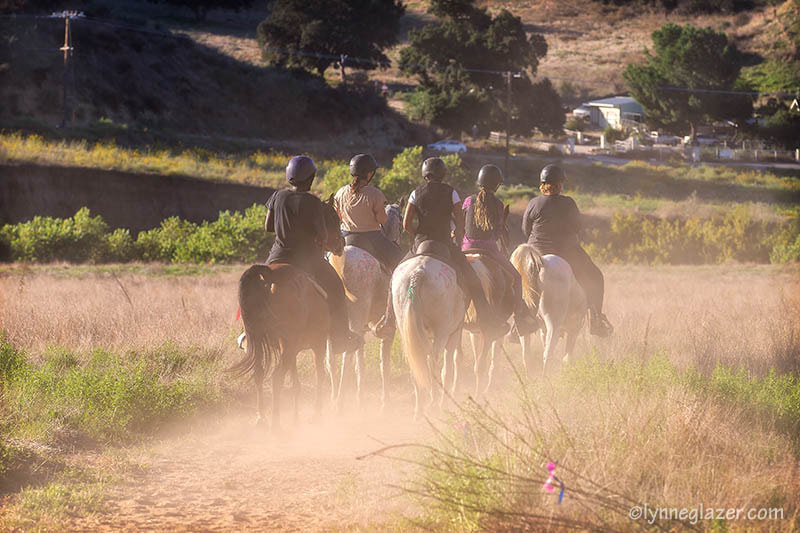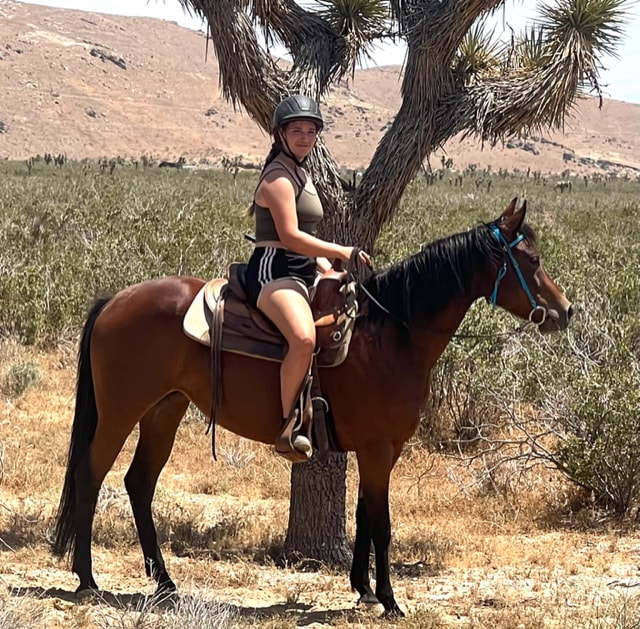About Us
The heart and soul of Love This Horse, Equine Rescue
"Love This Horse, Equine Rescue Inc." is a horse rescue specializing in taking in forgotten, neglected and abused Arabian horses from law enforcement seizures, local animal shelters, distressed owners, and from low-end horse auctions.
Our goal is to train all of our rescued Arabian horses, so they are rideable and to find our horses permanent adoptive homes. However, we also have a sanctuary horse program, where horses can live out their years in dignity and peace on our rescue ranch.
Our fantastic training team works hard to start or to restart our Arabian horses under saddle. To follow our training adventures, visit our Facebook Page at: www.facebook.com/lovethishorse or on Instagram under: @lovethishorse_rescue
Our goal is to train all of our rescued Arabian horses, so they are rideable and to find our horses permanent adoptive homes. However, we also have a sanctuary horse program, where horses can live out their years in dignity and peace on our rescue ranch.
Our fantastic training team works hard to start or to restart our Arabian horses under saddle. To follow our training adventures, visit our Facebook Page at: www.facebook.com/lovethishorse or on Instagram under: @lovethishorse_rescue
Even though our founder and director Vera V-Abdallah had been privately rescuing, rehabilitating and rehoming horses since 2010, Love this Horse was not formally incorporated until November 2016. In 2016, we rescued 11 horses and adopted 2 horses int0 permanent homes.
Since then, we have rescued 674 horses (as of 12/23/2023) and have adopted out 502 horses. We have 123 horses in our care at the rescue ranch or in foster homes (as of 12/23/2023).
Additionally, over the years, we have reunited 13 horses with prior owners (these were not counted as adoptions) and sadly, we have lost 36 horses due to old age or to colic.
Our primary focus is to rehabilitate, train and adopt out horses to permanent homes. However, over the years, we have accumulated 61 sanctuary horses that are either too old, too disabled or too traumatized to be riding horses. Sadly, there are very few companions only type adoption homes available for horses. Therefore, we have made a commitment to these horses to provide a safe haven where they can live and be happy.
Since then, we have rescued 674 horses (as of 12/23/2023) and have adopted out 502 horses. We have 123 horses in our care at the rescue ranch or in foster homes (as of 12/23/2023).
Additionally, over the years, we have reunited 13 horses with prior owners (these were not counted as adoptions) and sadly, we have lost 36 horses due to old age or to colic.
Our primary focus is to rehabilitate, train and adopt out horses to permanent homes. However, over the years, we have accumulated 61 sanctuary horses that are either too old, too disabled or too traumatized to be riding horses. Sadly, there are very few companions only type adoption homes available for horses. Therefore, we have made a commitment to these horses to provide a safe haven where they can live and be happy.
'Love This Horse Equine (LTH) Rescue - 501(c)(3) Tax Filing Information
Love This Horse Equine Rescue is a tax-exempt organization. LTH taxes can be located on the IRS website at https://www.irs.gov/charities-non-profits/tax-exempt-organization-search. Due to the pandemic, the IRS is not up-to-date on many organizations' tax filings. To provide transparency, click on 'Download File' to view the last five years of tax return filings.
Love This Horse Equine Rescue is a tax-exempt organization. LTH taxes can be located on the IRS website at https://www.irs.gov/charities-non-profits/tax-exempt-organization-search. Due to the pandemic, the IRS is not up-to-date on many organizations' tax filings. To provide transparency, click on 'Download File' to view the last five years of tax return filings.
| 2017.pdf | |
| File Size: | 377 kb |
| File Type: | |
| 2018.pdf | |
| File Size: | 398 kb |
| File Type: | |
| 2019.pdf | |
| File Size: | 363 kb |
| File Type: | |
| 2020.pdf | |
| File Size: | 6629 kb |
| File Type: | |
| 2021.pdf | |
| File Size: | 763 kb |
| File Type: | |
| 2022.pdf | |
| File Size: | 1271 kb |
| File Type: | |
When you support Love This Horse, you are changing lives. Please consider donating today.
ERNA VALDIVIA
Riding Trainer
Riding Trainer
Erna is Vera's youngest daughter, she is 17 years old and according to AERC rules, Erna can ride at endurance rides alone! She is very excited about this! Her favorite ride distance is 50 miles, but when riding the rescue horses at endurance rides, most aren't conditioned enough yet for that distance. So, they are show cased at the intro or LD riding level, which is maximum 25 miles in distance.
Erna learned to ride when she was five years old. She has been an avid rider since that time. In 2020, Vera taught Erna how to start horses under saddle and during the summer of 2020, Erna started three horses under her mom's supervision. Now, she is able to start horses on her own. To date (4/30/2024), Erna has started almost 45 horses under saddle!
Erna and Vera do most of the riding of the horses in training.
Erna learned to ride when she was five years old. She has been an avid rider since that time. In 2020, Vera taught Erna how to start horses under saddle and during the summer of 2020, Erna started three horses under her mom's supervision. Now, she is able to start horses on her own. To date (4/30/2024), Erna has started almost 45 horses under saddle!
Erna and Vera do most of the riding of the horses in training.
TAMARAH VALDIVIA
Groundwork Trainer
Groundwork Trainer
Tamarah is a year older than Erna. Tamarah is amazing in halter training and groundwork. She rides, but groundwork is her passion. She is the queen of teaching horses to learn to lift their feet, to tie, and to load into trailers. Tamarah can handle the craziest stallions. Once with Tamarah, he will be butter in her hands!
Most of the time, when working with horses, she wears a cover over her hair, so the dirt and dust doesn't get into her braids. Tamarah is graduating from high school in a couple of weeks and is starting community college in the summer semester. She is graduating with close to a 4.0 GPA and is a hard worker. Tamarah averages 24 groundwork sessions per week, after school and on the weekends. This is in addition to helping feed and other horse care chores. Tamarah owns a 23-year old senior gelding that nobody can ride but her. He will buck everyone else off. He is her baby.
Most of the time, when working with horses, she wears a cover over her hair, so the dirt and dust doesn't get into her braids. Tamarah is graduating from high school in a couple of weeks and is starting community college in the summer semester. She is graduating with close to a 4.0 GPA and is a hard worker. Tamarah averages 24 groundwork sessions per week, after school and on the weekends. This is in addition to helping feed and other horse care chores. Tamarah owns a 23-year old senior gelding that nobody can ride but her. He will buck everyone else off. He is her baby.
TAMARAH VALDIVIA
Assistant Trainer
Assistant Trainer
Vera has been around Arabian horses since she was a small child, with a mother who was an Arabian horse trainer in Europe and the Middle East. Her uncle was an Olympic level horse trainer of Warmbloods for jumping, some of his horses ended up competing for the German Olympic Team. From a young age, Vera learned all about training and riding.
While still living overseas, she participated in Arabian horse shows in Europe and the Middle East. Vera competed in jumping, dressage, three-day-eventing, cross country riding and endurance riding. After high school, while still in Germany, Vera completed a three-year college program for horse training, where she learned about nutrition, horse husbandry, stable management, teaching riding, and training horses.
When Vera moved to the United States to attend university, she earned an MBA, a master's degree in education, graduated from the police academy, and went on to earn her law degree.
After she earned her law degree from Thomas Jefferson School of Law in San Diego, she assisted others in adopting children from Haiti, where she also ran an orphanage. Vera is the mother of four internationally adopted children. Vera returned to the United States a year after the devastating earthquake in Haiti, after all of her orphaned children had joined their forever families in the U.S., Canada, Europe and South America.
After returning to the United States in 2010, Vera decided to buy herself an Arabian horse with the goal to compete at Scottsdale. However, all she could find were Arabian horses in rescue situations without papers and many not even halter broke! She got a gelding who was not registered because she fell in love with him. Vera decided that she could afford two horses and continued her search for a registered Arabian. However, the next one she came across was a body score of 1/9 and not trained to ride. That's when she started rescuing, rehabilitating, training and adopting out the Arabian horses to permanent homes.
Vera and her two youngest daughters Erna and Tamarah (age 17 & 18), along with a dedicated group of volunteers are the daily caregivers of the horses at "Love This Horse". Since they were young girls, Vera has taught Erna and Tamarah how to halter break a horse and how to start a horse under saddle. Both girls have become very skilled in training horses and Vera could not be any prouder!
While still living overseas, she participated in Arabian horse shows in Europe and the Middle East. Vera competed in jumping, dressage, three-day-eventing, cross country riding and endurance riding. After high school, while still in Germany, Vera completed a three-year college program for horse training, where she learned about nutrition, horse husbandry, stable management, teaching riding, and training horses.
When Vera moved to the United States to attend university, she earned an MBA, a master's degree in education, graduated from the police academy, and went on to earn her law degree.
After she earned her law degree from Thomas Jefferson School of Law in San Diego, she assisted others in adopting children from Haiti, where she also ran an orphanage. Vera is the mother of four internationally adopted children. Vera returned to the United States a year after the devastating earthquake in Haiti, after all of her orphaned children had joined their forever families in the U.S., Canada, Europe and South America.
After returning to the United States in 2010, Vera decided to buy herself an Arabian horse with the goal to compete at Scottsdale. However, all she could find were Arabian horses in rescue situations without papers and many not even halter broke! She got a gelding who was not registered because she fell in love with him. Vera decided that she could afford two horses and continued her search for a registered Arabian. However, the next one she came across was a body score of 1/9 and not trained to ride. That's when she started rescuing, rehabilitating, training and adopting out the Arabian horses to permanent homes.
Vera and her two youngest daughters Erna and Tamarah (age 17 & 18), along with a dedicated group of volunteers are the daily caregivers of the horses at "Love This Horse". Since they were young girls, Vera has taught Erna and Tamarah how to halter break a horse and how to start a horse under saddle. Both girls have become very skilled in training horses and Vera could not be any prouder!
At "Love this Horse", we have an active volunteer/internship program where young riders come to visit from the United States and from all over the world. They spend several weeks at the rescue ranch and assist in the care of the horses and with the training of the horses. (Please see our page on volunteering for more information) We focus on training our horses to be good trail horses. At the same time, Arabian horses are made for endurance riding. For the ones that we believe have talent for limited distance or endurance riding, we try to take them to compete at local AERC rides.
